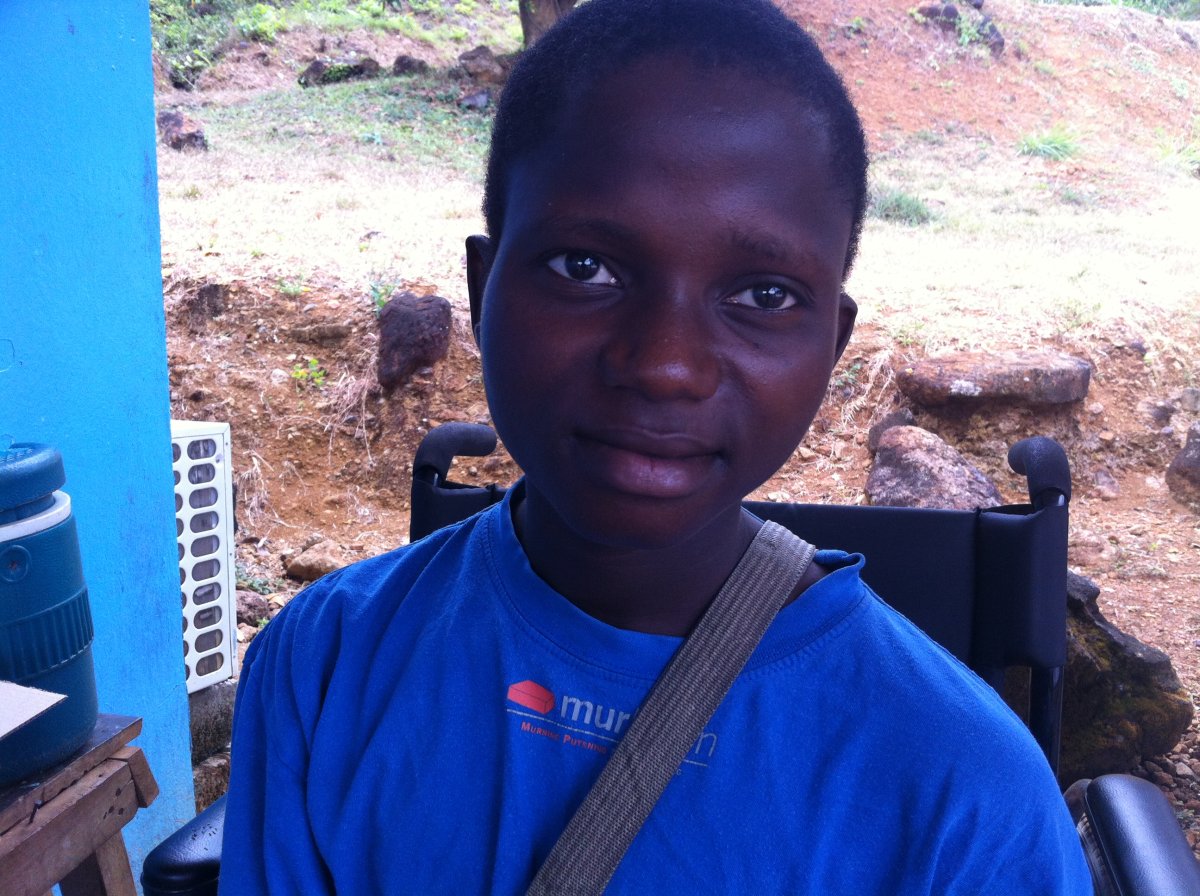Abandoned by his family, he lay mostly on his back in the bush, surviving on scraps he earned by cracking palm nuts for years on end.

His name is Varney. And his story is almost hard to believe.
He says he meticulously counted the days he languished, helplessly crippled by severe arthritis. Under constant threat of sickness and snake bites, he relied on the kindness of strangers to survive.
“Seven years, nine months and eleven days,” he says, estimating he’s now 20 years old. “I lay down. People feel sorry for me. They give me ten dollars and a bag of rice.”
Varney says he developed the paralyzing pain at the age of 13. His condition has left him unable to walk. His family is among many villagers who believe sickness is a curse. To them, a child that disabled needs to be disposed of. Forgotten. Left for dead.
“They were tired of my sickness,” Varney says.
Every three months his sister came by to check if he was still alive.
It’s a heartbreaking story of how people with physical and mental disabilities are often treated here in Liberia, especially out in remote areas where many deeply spiritual tribes believe in witchcraft.
It wasn’t until this past November that a United Nations worker named Anne learned of Varney’s plight and arranged a visit. Her team traveled three hours to the village of Voorgbo and documented the nightmare that had been this boy’s life for so long.
Anne brought Varney to St. Timothy Hospital in the small beachside town of Rogersport, about 3 hours from the Liberian capital of Monrovia. The doctor here says he was severely malnourished, suffering from anemia and a rapid heartbeat.
Pauline Tavidnimle, a social worker at the hospital, says Varney has come a long way from when he first arrived – afraid, ashamed, and not accepting of his condition.
“I feel a chill because he’s a human. And you cannot tell what he’ll become. It will be heartless to take a child and just throw the child away.”
She marvels at Varney’s will to survive.
“It’s almost like a miracle.”
Pauline wishes she could go out to these remote villages to find more Varneys, but she has no mode of transportation. Resources to care for existing cases here are scarce as is. Many disabled patients have no visitors. A poster on her wall shows a man who has been here all alone since 1999, suffering from mental illness.
Still, Varney is one of the lucky ones. Many disabled Liberians are killed in their villages or die before any help arrives.
He has become a little star here in Robertsport. An American duo that owns a nearby surfing lodge bought him a cell phone. He calls Dan, one of the owners, several times a day asking him to visit.
He smiles at all the attention as the group of journalists I’m with take his picture. I ask him to wheel his chair across the ground so I can get some video. It makes him so happy that I tell him to keep going back and forth, again and again.
I later asked Anne how she thinks Varney was able to survive as long as he did.
“God wanted him to live and tell his story,” she says, her eyes turning glassy.
The doctor here says with the right medical attention, Varney will walk again. But that kind of care isn’t available here. He’s stuck at St. Timothy until someone finds a way to either get him to Monrovia or – even better – outside the country.
But at least he’s not alone, fending for himself anymore.





Comments